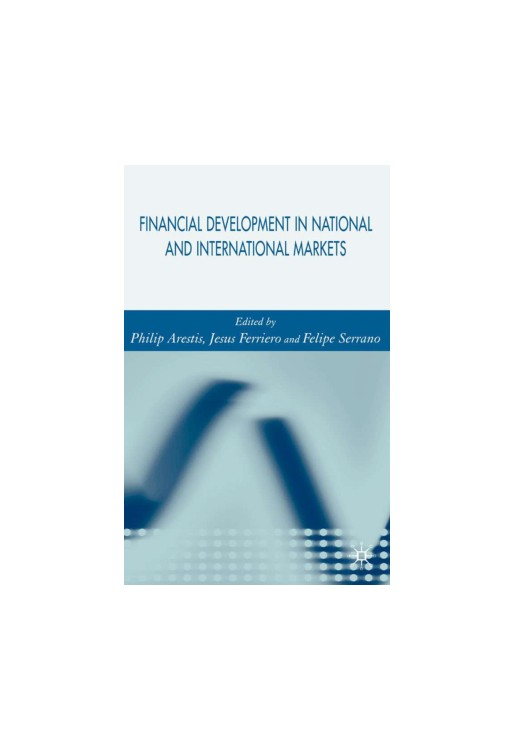This book offers a comprehensive analysis of the problems that the current working of capital markets are generating on both developed and developing economies. It pays special attention to the reasons explaining the unstable and volatile working of international financial markets and to the consequences of that behaviour on both the economic performance of the involved countries and on the economic policies implemented.
Notes on the Contributors Introduction; P.Arestis, J.Ferreiro & F.Serrano Disutility of International Debt: Analytical Results and Methodological Implications; G.Hannsgen On the Changing Nature of Currency Crises; K.Erturk Financial System Regulation; Stability versus Instability: Some Strategic Considerations; D.Cantarero & D.Ceballos The Bretton Woods Institutions Sixty Years Later: A 'Glocal' Reform Proposal; S.Rossi The Monetary Policy of the ECB and the FED: Credibility versus Confidence, a Comparative Approach; E.Le Heron & E.Carré The Case for Fiscal Policy; P.Arestis & M.Sawyer Is an Increase of the Fiscal Budget at EMU Level Desirable?; D.Furceri How Sensitive is the US Dollar to Economic Policy?; E.Karakitsos The Pattern of Inward FDI Geographical Distribution: Can Developing Countries Base their Development on these Flows?; C.Rodríguez, J.Ferreiro & C.Gómez Financial Deregulation and Capital Flows in Latin American Countries; E.Correa & G.Vidal The Impact of Multinational Banking on Domestic Banking; C.Gnos & L-P.Rochon Spanish FDI in Latin America, 1989 - 2004: A Constructivist Framework for Analysis; P.Toral Role of the International Monetary Fund in the Economic Policymaking and Growth of the Baltic Countries; U.Vaarja Index




